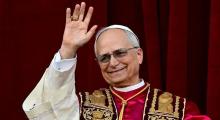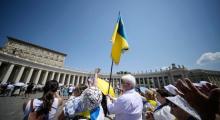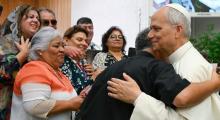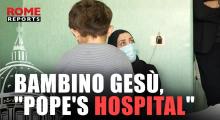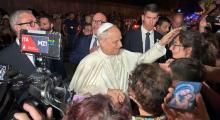Issued by the Catholic Center for Studies and Media - Jordan. Editor-in-chief Fr. Rif'at Bader - موقع أبونا abouna.org
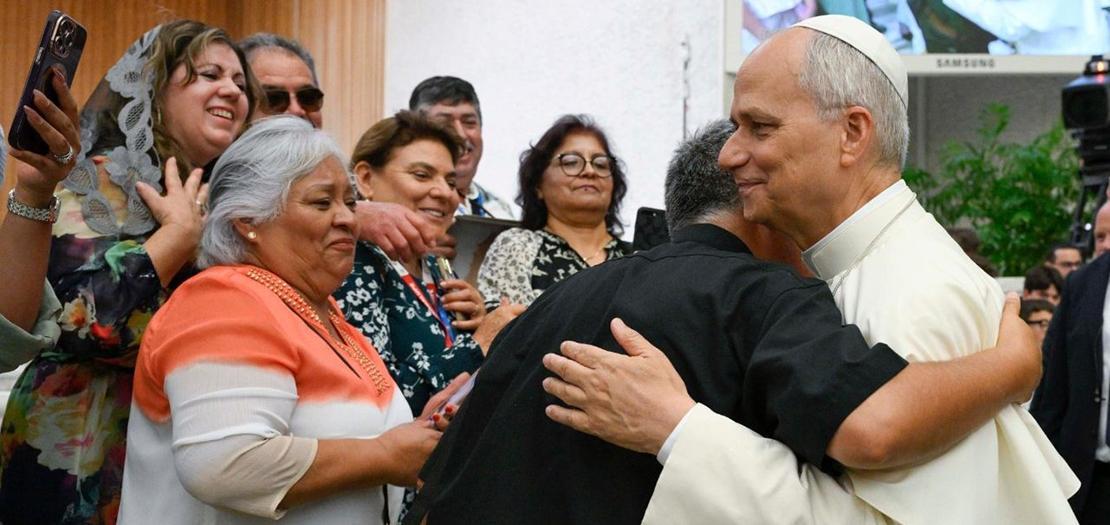
“True forgiveness does not await repentance, but offers itself first, as a free gift, even before it is accepted.” With these words, Pope Leo XIV commented on the passage from the Gospel of John that describes Jesus offering bread even to Judas who betrays him. It is the divine logic, so far from the human logic of "do ut des" (something for something). Jesus, the Pope explained, is not unaware of what is happening, but precisely because He sees clearly, He knows that “the freedom of the other, even when it is lost in evil, can still be reached by the light of a meek gesture.”
This is the scandal of "preventive" forgiveness — forgiveness that comes first, with an offer of mercy’s embrace, without requiring any preconditions. This is just like what happened with the tax collector Zacchaeus, who repented because he was called and welcomed by Jesus, who had invited Himself to Zacchaeus’s home to the great shock of everyone witnessing such a break with traditions and social conventions by the Nazarene.
How much our lives and relationships need this kind of forgiveness. How much our world needs this forgiveness — which “not forgetfulness" nor “weakness.” Prophetic words come to mind from the Message for the 2002 World Day of Peace, which Pope John Paul II published shortly after the terrorist attacks of 11 September in the United States. While everyone was speaking of “preventive” war, in response to the enormity of the attack, the Pope wanted to affirm that there is “no peace without justice, no justice without forgiveness.”
Pope John Paul II said, “I have often paused to reflect on the persistent question: how do we restore the moral and social order subjected to such horrific violence? My reasoned conviction, confirmed in turn by biblical revelation, is that the shattered order cannot be fully restored except by a response that combines justice with forgiveness. The pillars of true peace are justice and that form of love which is forgiveness.”
Not only individuals, but also “families, groups, societies, States and the international community itself need forgiveness in order to renew ties that have been sundered, go beyond sterile situations of mutual condemnation and overcome the temptation to discriminate against others without appeal. The ability to forgive lies at the very basis of the idea of a future society marked by justice and solidarity.”
On the other hand, as John Paul II also explained, the absence of forgiveness, especially when it fuels ongoing conflict, is “extremely costly in terms of human development. Resources are used for weapons rather than for development, peace and justice. What sufferings are inflicted on humanity because of the failure to reconcile! What delays in progress because of the failure to forgive! Peace is essential for development, but true peace is made possible only through forgiveness.”
Pope Leo concluded the General Audience by explaining that without forgiveness, there will never be peace. He invited everyone to a day of prayer and fasting for peace on Friday, 22 August, to implore the intercession of Mary, Queen of Peace, and to ask God for peace and justice for a world scarred by wars. For our world, that so desperately needs “preventive” forgiveness.


